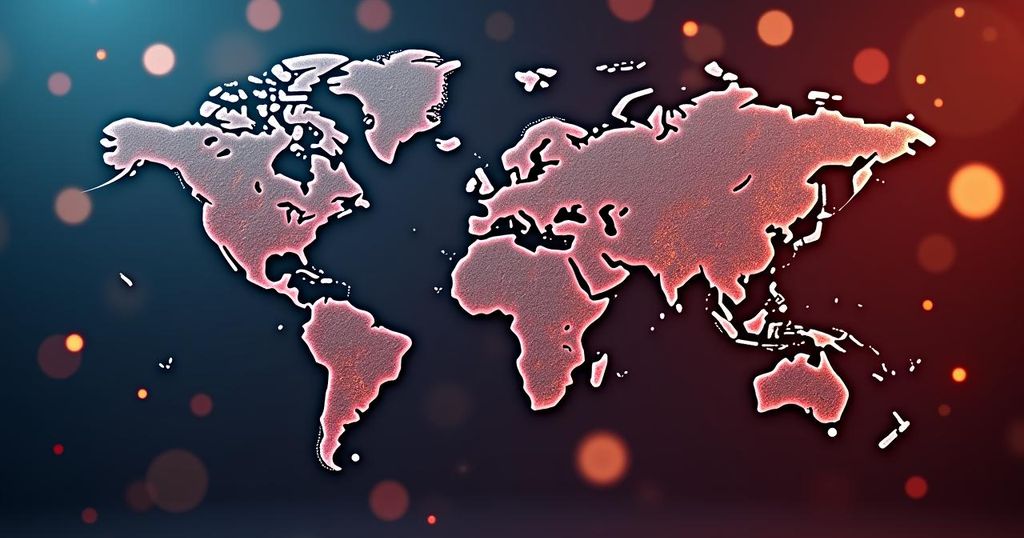Blask x NEXT.io: South Africa and Brazil Surge into Top 5 iGaming Markets
South Africa and Brazil have recently emerged as top five iGaming markets worldwide, according to recent analytics. Brazil surpassed England in online betting participation, now ranked fifth globally, while South Africa leads with a 30% engagement rate. The analysis of market metrics reveals variations in player demographics, with both countries offering unique opportunities for operators. The findings indicate significant growth potential in these emerging markets, emphasizing the need for tailored strategies to maximize success.
In a remarkable advancement for the global iGaming industry, both South Africa and Brazil have emerged as significant players, now ranking amid the top five iGaming markets worldwide. According to a recent article by iGaming Brazil, entitled “Brazil leads growth in online betting and surpasses England,” these emerging markets are reshaping the traditional landscape dominated by established regions. Brazil has notably surpassed England in online betting engagement, with 22% of its population participating in online betting activities, in comparison to 19% of users in England. This marks a considerable increase from the previous year, where only 15% of Brazilians were engaged in similar activities. As a result, Brazil is now positioned as the fifth largest market globally in bookmaker utilization, trailing only behind New Zealand, Greece, Norway, and South Africa. On the other hand, South Africa has achieved the leading position, with an impressive 30% of its population engaging in online betting, indicating a rapid adoption of iGaming in this emerging market. The analysis powered by Blask, a leading AI-driven market analytics ecosystem, delves deeper into market metrics for both countries throughout 2024. The Blask Index for South Africa illustrated a fluctuation in engagement levels across the year, from a significant peak of 62 million in September following a dip earlier in May. In terms of effective gross gaming revenue (eGGR), the market presented a stable average around $533 million, with minor variance observed in the following months. Brazil exhibited a markedly volatile but upward-trending Blask Index, starting the year at 169 million and peaking at 228 million in July. The eGGR figures for Brazil also demonstrated significantly higher values, reflecting a potentially larger market than South Africa. Moreover, the analysis of player demographics reveals that South Africa’s active iGaming participants are predominantly aged between 25 to 34 years, while Brazil showcases a younger demographic, predominantly aged 18 to 24. To summarize, the customer profiles in both regions emphasize a similar distribution of income and education levels, focusing heavily on mid-income brackets and high school education, while inviting operators to consider tailored strategies that resonate with these demographics. Additionally, the variability in the Brazilian market highlights a need for adaptable operational approaches to navigate potential market fluctuations effectively. The continued growth of the iGaming sector in South Africa and Brazil marks a significant shift in the global industry, providing tremendous opportunities for operators keen to leverage the unique market characteristics and demographic insights. As these markets continue to mature, they are set to influence the future trajectory of the global iGaming landscape significantly.
The significance of the iGaming sector has been increasingly recognized globally, particularly with the emergence of new markets. South Africa and Brazil have recently attained notable positions in this sector, reflecting a shift in online betting dynamics. With South Africa leading in engagement rates and Brazil demonstrating rapid growth in participation, these countries present diverse opportunities for stakeholders in the iGaming industry. The utilization of data analytics is crucial for operators aiming to understand market trends and player behaviors, as seen in the analyses provided by the Blask Index. This information is invaluable in developing tailored strategies that can respond to the unique characteristics of each emerging market.
In conclusion, the rise of South Africa and Brazil into the top five global iGaming markets signifies an important transformation within the industry. Both markets exhibit high engagement rates, with South Africa leading at 30% and Brazil following closely at 22%. The analysis suggests considerable growth potential for operators willing to adapt their strategies to cater to the young and diverse demographics in these regions. While Brazil presents a more volatile market environment, both nations demonstrate promising trends in data analytics, indicating sustained growth and an opportunity for targeted operational approaches. As these markets continue to evolve, they will undoubtedly play a pivotal role in shaping the future of the global iGaming landscape.
Original Source: next.io




Post Comment